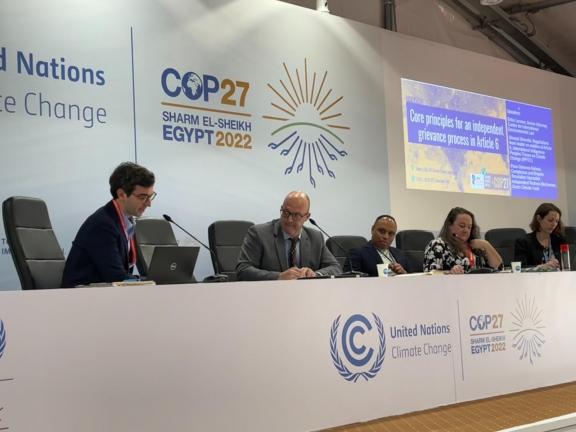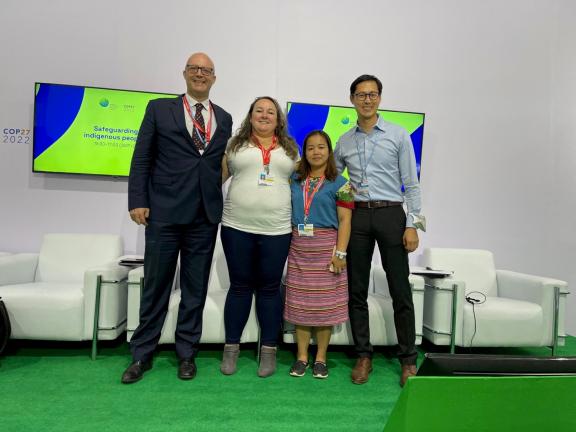Redress, the IRM and COP27
The annual Conference of the Parties (COP) is an opportunity for the international community to pave the way for future ambition to effectively tackle the global challenge of climate change. At this year’s COP27, hosted by the Government of Egypt, nearly 90 Heads of State and thousands of participants convened in Sharm el-Sheikh, Egypt.
The IRM participated in two side events. The first event on 9 November, organised by CCFD-Terre Solidaire and Carbon Market Watch, looked at the core principles needed for a successful independent grievance process as part of Article 6 of the Paris Agreement. Paco Gimenez-Salinas, Compliance and Dispute Resolution Specialist at the IRM, shared the IRM’s experience as the grievance mechanism of the GCF.
The second event on 10 November, co-hosted by the IRM, the Center for International Environmental Law (CIEL) and the Indigenous Peoples' International Centre for Policy Research and Education (Tebtebba), looked at how Indigenous Peoples have been impacted by climate finance projects, and how grievance accountability mechanisms like the IRM have helped provide recourse to Indigenous Peoples and others who have been affected by development projects. A few key takeaways from the event include:
- Indigenous Peoples are not only victims of climate projects. Indigenous Peoples have some of the best solutions for both mitigation and adaptation and should be leveraged as partners.
- Importance of proper safeguards and policies to ensure communities benefit from GCF projects.
- Indigenous Peoples continue to experience criminalization for demanding climate action and speaking out against negative business and governmental actions.
The event was moderated by Peter Carlson, IRM’s Communication Associate and featured interventions from Erika Lennon, Senior Attorney, Climate and Energy Program at CIEL, Helene Magata, Kadaclan Indigenous People’s representative and Communications Officer of Tebtebba and Paco Gimenez-Salinas.

